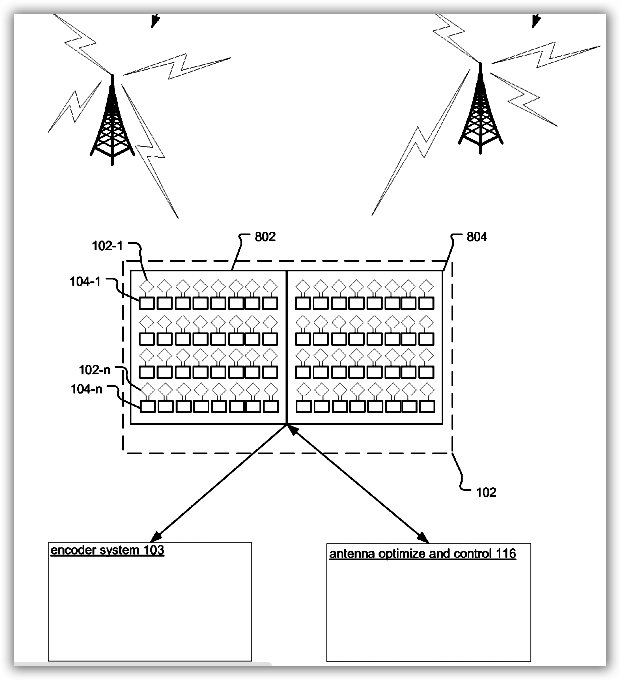aNewDomain.net — The controversy that Barry Diller backed Aereo is in the middle of right now is a replay. It resembles Napster’s 1990s-era fatal struggle with the music business, too. That’s just one reason why the outcome of Aereo’s battles matter so deeply to cord cutters, TV viewers and the television business in total. Our Chuck Ward explains why.
ED: For insight on how Aereo works, check out this piece from our Larry Press.
From the beginning, cable TV services tried to retransmit broadcast TV –that is, over the air or ‘OTA’ signals — to their customers. Broadcasters always responded by accusing cable companies of stealing their programming in retransmitting these signals.
This is the argument that ultimately led to the FCC barring cable service providers from retransmissions.
But the 1992 Cable Television Protection and Competition Act reversed that. When it passed, the legislation ensured that cable service providers could re-transmit over-the-air (OTA) broadcasts as long as they obtained consent of the broadcaster — and it allowed the broadcaster to seek compensation, too.
But now everything’s changed. With the rise of access broadband internet and streaming video services, you’ve got a growing percentage of TV viewers who rely on their broadband Internet connections to receive TV content through such services as Hulu+, Netflix, and Amazon Prime. Maybe you’re one of them. If you are, you’re what we call a cord cutter.
Cord cutters are more than 3 million persons strong. These are viewers who have canceled their monthly cable TV services, saving a lot of money in doing so. No wonder TV networks and cable TV service providers are nervous.
Cord cutting is directly responsible for several recent distributes compensation between broadcasters and cable TV service providers, along with calls for a-la carte (per channel) pricing for cable TV service. Further disruption has been due to the increase of popular content created by non-broadcast networks — such as HBO, Showtime, Netflix, Hulu and Amazon Prime — that are available not just through cable TV services but also over the Internet.
Enter Aereo. In the midst of this disruption, Aereo is looking to extend the distribution of local, “over-the-air” (OTA) TV broadcasts, to the cloud and internet, with what it believes to be a legal solution.
Launched in New York City and available in Washington D.C. and Boston, media heavyweight Barry Diller and his company InterActive Corp., owner of The Home Shopping Network and The USA Network cable channels, are backing Aereo with considerable cash and clout,
Aereo enables customers to rent — for about $12 a month — one of Aereo’s proprietary dime-sized antennaes placed in mentropolitan grids. That way their mobile devices easily receive local over-the-air broadcast TV signals. Aereo customers can store them in the cloud and stream them to a variety of devices or use it DVR-style, ala Roku. (ED: For more on how Aereo works, check out this piece by our Larry Press.)
A long line of broadcasters are suing Aereo over infringement and other issues related to retransmission.
So you have to wonder why Diller would back a startup with such a huge legal monkey on its back.
So far Aereo has succeeded in defeating an injunction filed by ABC, CBS, NBC and other networks and owned and operated stations related to the national networks in the United States.
Of course there will be appeals and most likely a federal trial or a congressional hearing on this matter. A lot of money and pride is riding on this.
Already, a knee-jerk reaction to this ruling has come in the form of several networks threatening to pull the plug on over-the-air (OTA) broadcasts or offer their own streaming services. Either way, the networks perceive Aereo as a threat to their business.
And as this story plays out, it sounds eerily similar to the disruption the music industry faced a few decades ago when its various reps sued Napster and other file sharing networks out of business. It was a futile attempt to protect their own distribution channels and profits.
Inevitably this period of disruption gave rise to legitimate digital music distribution, destroying the music industry’s own distribution channels and reducing their profits as a direct result.
I wonder what would have been the outcome had the music industry not wasted resources on lawsuits but, rather, embraced digital distribution and legitimized it. Apple iTunes and Pandora were the benefactors because they did not.
The broadcast and cable TV industries are at a similar crossroads.
In order to offer its service Aereo has to co-locate its antenna infrastructure and streaming encoders in each market it enters. Because Aereo limits streaming of local broadcasts to subscribers only in same geographic location, Aereo lawyers argue this is no different than if the same subscribers received the same TV broadcasts using an over-the-air antenna.
While the legalities may point to The Cable Television Consumer Protection and Competition Act, along with the landmark Sony Betamax case — that was Universal City Studios, Inc. et al. v. Sony Corporation of America Inc. et al. –there is the issue of personal issue.
Aereo differs in that the consumer does not personally own the antennae. Instead, it’s a rental. Aereo rents its antenna hardware and streams via broadcast the content to the consumer.
Diller has a bigger vision for what Aereo will be come. In my view, it would be in the best interest of the broadcast networks to embrace Aereo, just as the music industry should have done with Napster.
There is a lot that Aereo could bring to the table to help local TV broadcasters retain the growing population of cord cutters, many of whom do not receive any local TV broadcasts.
Aereo might also provide the same broadcasters with more precise viewer demographics, leading to higher advertising revenues.
This much I’m sure of. Though Aereo faces the same risks — and perhaps the same fate — as Napster did, its technology will forever change the distribution model of the TV industry.
For aNewDomain.net, I’m Chuck Ward.
Based in Connecticut, Chuck Ward is a longtime IT pro and tech industry analyst. Currently, he is CIO at a private investment firm and a senior contributor here at aNewDomain.net. Chuck helped establish a Maker Space in Hartford, CT. He also is founder of Stealth Mode Projects, which incubates new ideas and mentors engineering students on their Capstone projects. Email him at Chuck@aNewDomain and follow him @cdward.














great read!
-RAP, II